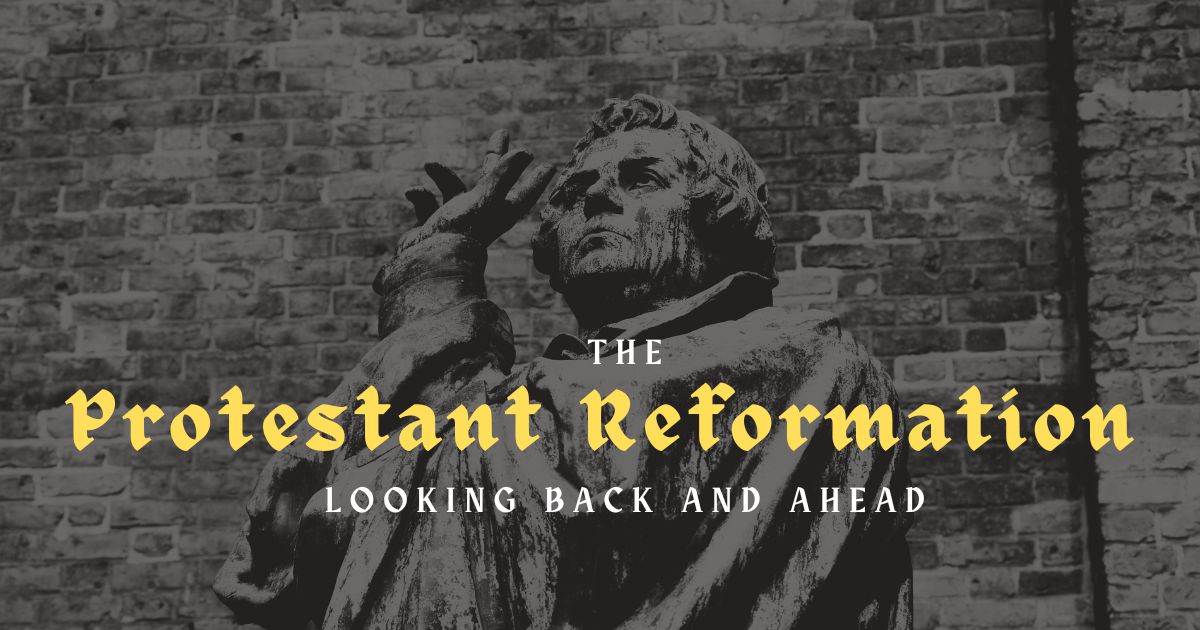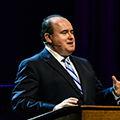It is somewhat of a paradox that the name “Protestant Reformation” (more commonly known just as the “Reformation”) is made up of two words which are kind of ironic. “Protestant”—meaning someone who is protesting—no longer carries the same meaning that it did 500 years ago. Now “Protestant” is used to generally refer to any Christian church or denomination that is not Roman Catholic. And the word “Reformation” is ironic because it never happened. That’s right, the Reformation never happened.
Now, before you start, well—protesting, let me explain. What history now refers to as the Reformation started as an attempt by Roman Catholic priests in 16th century Europe (most famously Martin Luther) to reform the Roman Catholic Church. Specifically, it was an effort to protest the fact that the Roman Catholic Church had strayed miles away from what the Bible says about how God deals with the problem of human sin. On October 31st, 1517, almost exactly 500 years ago, Martin Luther nailed his Ninety-Five Theses—statements of theology and pointing out of error in the Roman Catholic Church—to the church door in Wittenberg, Germany, where Luther served as professor of theology at the University of Wittenberg.
Luther was trying to draw attention to the fact that the Roman Catholic Church had lost her way in terms of teaching people how to have their sins forgiven by God. Specifically, Luther was protesting the sale of indulgences—pardons for sin given in exchange for a donation to the church. In fact, the indulgence sale Luther was protesting happened to be the very effort to raise money for Michelangelo to paint the ceiling of the Sistine Chapel of St. Peter’s Cathedral in Rome. Luther’s hope was that he could begin a dialog with Pope Leo X about these issues. But instead, Pope Leo X wrote off Luther, saying that Luther was probably drunk when he nailed the theses to the door.
So, what do I mean that the Reformation—in the purest sense—never happened? The Roman Catholic Church would never enter into serious dialog and was not going to budge on its stance on sin and salvation. They would continue to demand good works and earned merit in order to qualify for God’s mercy. The more money you had and the more so-called good deeds you did, the more likely God was to accept you. And of course the Roman Catholic Church maintained that they alone could tell you when you had enough. The Reformation of the Roman Catholic Church never happened. Instead, what we refer to as the Reformation was really a schism, a separating out of people who protested the Roman Catholic view of salvation. These separatists, led by Luther and many others like him, held that the Bible teaches that salvation from sin cannot be earned and is by the grace of God alone through faith alone in Jesus Christ alone. They began meeting as separate groups which would become known as protestant churches.
The Protestant Reformation shaped the landscape of Christianity as we know it today. And those pleased to called themselves “reformed,” as I do, celebrate the anniversary of allowing the Bible to speak for itself and to return to the gracious gift of God that He offers solely by virtue of Christ’s payment for sin on the cross and not by any earned or merited effort on my part.

